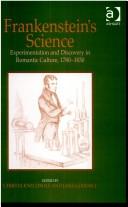| Listing 1 - 4 of 4 |
Sort by
|
Book
ISBN: 9780754661337 Year: 2008 Publisher: Aldershot Ashgate
Abstract | Keywords | Export | Availability | Bookmark
 Loading...
Loading...Choose an application
- Reference Manager
- EndNote
- RefWorks (Direct export to RefWorks)
Having identified the literary origins of the Faustus legend in the "German Faust Book" (1587) and its English translation (1592), this book argues that these works transformed a simple rogue's tale into an incisive study of morality and beliefs. The chapbooks' contrastive portrayal of an imaginary experience of hell and a pseudo-scientific journey through the cosmos is interpreted as an unconventional approach to the questions of an inquiring mind. This study offers the first analysis of the chapbooks as literary works in their own right, as opposed to simply being sources for Christopher Marlowe's play. It is also the first study to describe the Faustus typology as a vehicle by which uncompromising thinkers of early modernity and the Enlightenment questioned contemporary views about religion, morality and the possibility of experiencing transcendence. While arguing that Marlowe's Doctor Faustus primarily examines the imaginary foundations of religious rules and standards, the author suggests that the 1616 version of the play revived the chapbooks' accounts of spiritual ravishment and intellectual ecstasy. Imaginary explorations of cosmic space became popular in the seventeenth century and gave rise to strongly diverging works of literature, embracing the arcane spirituality of Milton's Paradise Lost as well as Fontenelle's sociable but essentially secular fantasy of cosmic travel. This book shows that contemporary responses to early modern science also tended to address the most urgent concerns of the Faustus legend, explaining the re-emergence of the typology in Mountfort's late seventeenth-century farcical Faustus play and early eighteenth-century harlequinades about Doctor Faustus.
Faust, --- In literature.

ISBN: 9780754654476 0754654478 9781315255033 9781351935821 9781138257993 Year: 2008 Publisher: Aldershot Ashgate
Abstract | Keywords | Export | Availability | Bookmark
 Loading...
Loading...Choose an application
- Reference Manager
- EndNote
- RefWorks (Direct export to RefWorks)
Shelley, Mary W. --- Frankenstein (Fictitious character) --- Frankenstein, Victor (Fictitious character) --- Literature and science --- Romanticism --- Science in literature. --- Science --- Scientists in literature. --- History --- Shelley, Mary Wollstonecraft, --- Frankenstein (Fictitious character). --- Frankenstein, Victor (Fictitious character). --- Shelley, Mary --- Science in literature --- Scientists in literature
Book

ISBN: 3110333805 9783110333800 9783110333695 3110333694 3110372606 Year: 2014 Publisher: Berlin Boston
Abstract | Keywords | Export | Availability | Bookmark
 Loading...
Loading...Choose an application
- Reference Manager
- EndNote
- RefWorks (Direct export to RefWorks)
This volume introduces key concepts for a trans/national expansion in the study of culture. Using translation as an analytical category, it explores what is translatable and untranslatable between nation-specific approaches such as British/American cultural studies, German Kulturwissenschaften and other traditions in studying culture. The range of articles included in the book covers both theoretical reflections and specific case studies that analyze the tensions and compatibilities amongst contemporary perspectives on the study of culture. By testing various key concepts - translation, cultural transfer, travelling concepts - this volume reflects on an essential vocabulary and common points of reference for scholars seeking new frameworks and methodologies for the foundation of a trans/national study of culture that is commensurate with the entangled nature of our world society.
Culture --- Transnationalism. --- Cultural pluralism. --- Knowledge, Sociology of. --- Knowledge, Theory of (Sociology) --- Sociology of knowledge --- Communication --- Knowledge, Theory of --- Public opinion --- Sociology --- Social epistemology --- Cultural diversity --- Diversity, Cultural --- Diversity, Religious --- Ethnic diversity --- Pluralism (Social sciences) --- Pluralism, Cultural --- Religious diversity --- Cultural fusion --- Ethnicity --- Multiculturalism --- Trans-nationalism --- Transnational migration --- International relations --- Cultural sociology --- Sociology of culture --- Civilization --- Popular culture --- Research. --- Social aspects --- translation.
Digital

ISBN: 9783110333800 9783110372601 9783110333695 Year: 2014 Publisher: Berlin ;; Boston De Gruyter
Abstract | Keywords | Export | Availability | Bookmark
 Loading...
Loading...Choose an application
- Reference Manager
- EndNote
- RefWorks (Direct export to RefWorks)
| Listing 1 - 4 of 4 |
Sort by
|

 Search
Search Feedback
Feedback About UniCat
About UniCat  Help
Help News
News